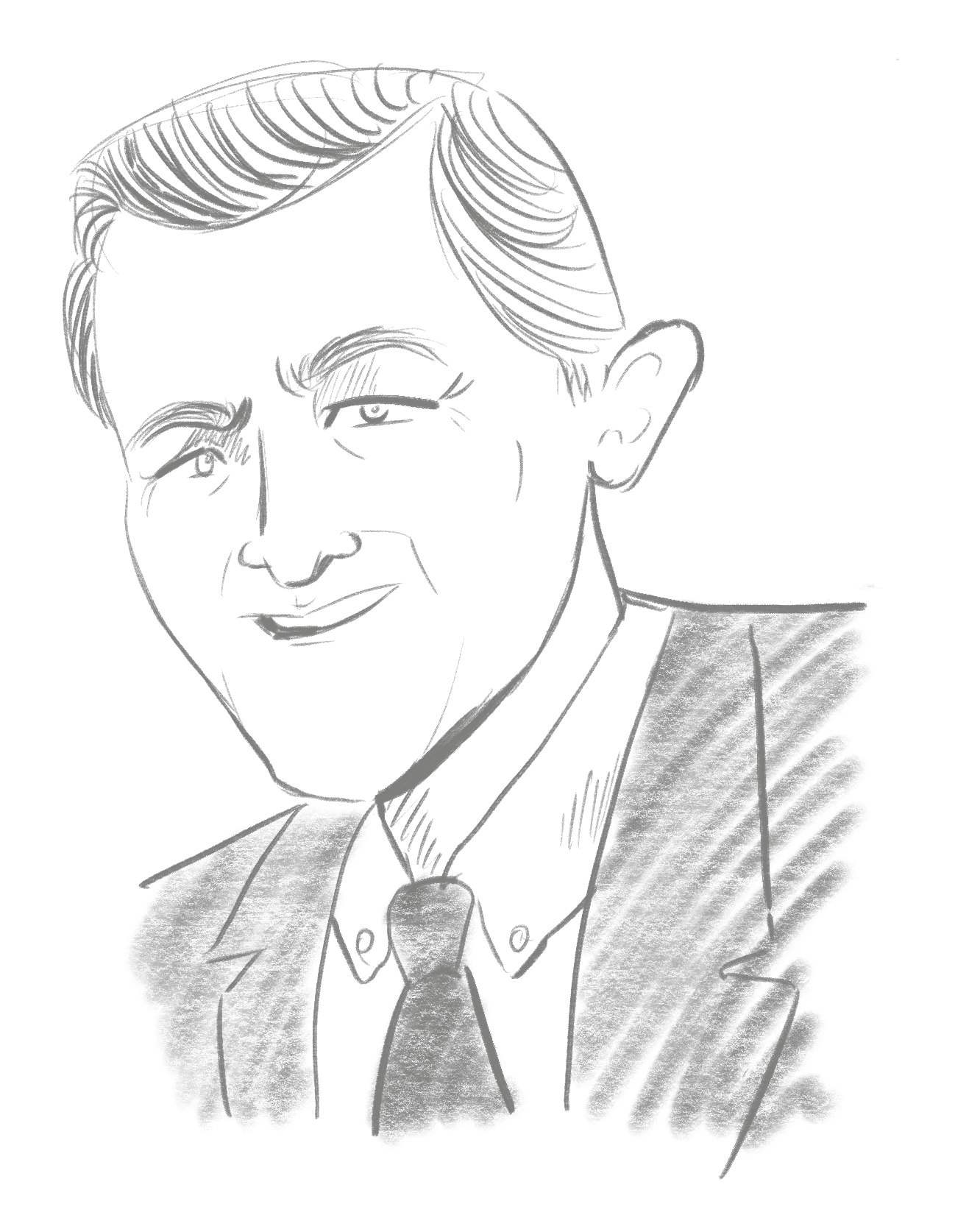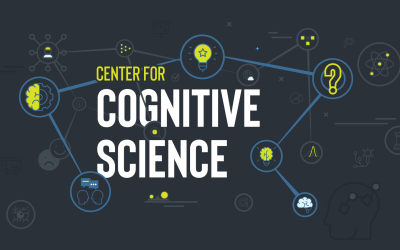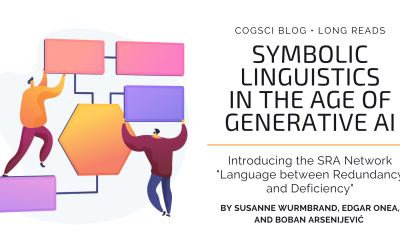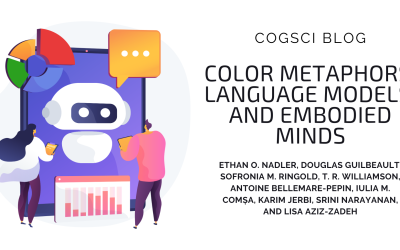I had no idea what I was in for when I showed up at Stanford to start graduate school in 1968. I was a particularly green, just turned 21, with lots of enthusiasm for studying human cognition but really little sense for how to do that. I knew I was going to work with the famous Gordon Bower and I thought I was going to study mathematical psychology. However, in our first meeting Gordon told me that mathematical psychology was dead (surely an exaggeration) and that I should study artificial intelligence. Being a compliant student, I followed his advice and together we began applying it to an understanding of human memory.
What I experienced is what so many of his graduate students have experienced – someone who was both encouraging of your ideas but also critical of any weaknesses in them. I spent time in his office almost every day, describing the newest results, receiving encouragement, feedback on how to best present these ideas, and advice on how to it better. Every paper I wrote came back marked up with red ink. Considering where I started from, I emerged 4 years later with a remarkably productive graduate career. However, I was still pretty innocent in the ways of professional psychology and Gordon assisted a lot in those first few years. Many times in subsequent years Gordon reached out to me with encouragement and advice. It is remarkable that Gordon was able to pursue his own successful scientific career and be so involved in the lives of so many of his students.
-John Anderson
Throughout his career, Gordon was a constant force that shaped the field of learning and memory, sculpted the next generation of intellectual leaders, and fostered departmental excellence. He was passionate about ideas and data, deeply cared about scientific precision, and was remarkably dedicated to his students and colleagues. His science provided powerful, quantitative accounts of how animals and humans learn; he conducted seminal work revealing that memories for events consist of multi-featural associations; he delineated how learning and remembering benefit from the integration of new information with prior knowledge, along with other mnemonic strategies; and his studies on how emotion and memory interact contributed to the emergence of affective cognitive science. As a mentor, Gordon tirelessly supported his students and postdocs, while also being committed to the development of the broader cohorts of students in the Stanford Psychology graduate program. He was an unwavering and engaged presence in student and departmental seminars, with inedible impacts. His outstanding mentoring was not only recognized through awards, but is also evidenced by surveying the field and noting the many exceptional Bower trainees who are leaders in their areas; Gordon delighted in his students’ successes and maintained close lifelong connections. For approximately 50 years, Gordon was a giant within Stanford Psychology, establishing the department as a place to advance psychological science and to leverage science to address real-world problems. His commitment to intellectual rigor, his breadth of engagement, his fierce yet gentle approach, and his friendship will be dearly missed.
-Anthony Wagner
Reflecting Gordon Bower
I had meant to entitle this piece “Reflecting on Gordon Bower”, but skipped over the preposition as I typed. Reflecting further, I realized I was not so much reflecting on Gordon as considering how we his students came to reflect him. So I’ve left the title mistyped.
I was Gordon’s PhD student from 1972-1976. The decades rolled on, and those formative years are far behind me. Yet I have a sense that Gordon’s influence continues, the way the brief burst of a thruster alters the trajectory of a satellite. I wouldn’t call him a role model exactly, because he didn’t expect us to imitate him, and in any case he was inimitable. But as a mentor he instilled in his students a kind of worldview concerning science in general and psychology in particular—beliefs and attitudes, largely implicit, that have guided our research careers. I’ll sketch this worldview that I trace to Gordon—not in the sense that he created it de novo, but rather that he was an effective conduit for its transmission.
Gordon was a clear-eyed seeker after truth. The truth of how the human mind works is elusive, but open to empirical inquiry. Cognitive psychology is therefore a worthy pursuit. Specific research questions will change, new methodologies will arise and should be embraced, favored theories (including one’s own) will be overturned, but the search for truth continues. Science requires a balance between action and contemplation; between the two, Gordon laid greater weight on action. Not every experiment is intended to adjudicate between well-articulated hypotheses—sometimes collecting some initial data can serve to stimulate the generation of new ideas.
As a social enterprise, Gordon viewed science as essentially meritocratic. He could be intimidating in his criticisms, but his intellectual evaluations reflected his judgments of scientific value, not academic rank. He was equally prepared to commend the promise of an undergraduate’s tentative idea as to dissect the logic of a renowned professor’s theory.
In subtle ways, Gordon conveyed a sense of what he saw as the priorities for a scientific career. A scientist naturally hopes that their findings will be appreciated by peers, and that their career will flourish. All varieties of professional recognition are welcome (and Gordon earned pretty much all of them). But from first to last, the basic mission is to seek the truth, and to try as best one can to get things right.
-Keith Holyoak
The three of us became students of Gordon’s during the late 1970s. Our offices were next to his, where his presence was always felt, regardless of whether he was in. When he was, there was no doubt about it. His big intellect and personality, together with his large sauntering frame, were hard to miss. He cared tremendously about his students and often poked his head in our office to ask, ‘How’s it goin’ there?” Although Gordon allowed us almost complete independence in what we worked on, he set a high bar that it needed to be good and that there should be a lot of it. Regardless of the topic, Gordon influenced our research considerably through regular interactions in one-on-one meetings and well-remembered feedback received in group settings. On the one hand, Gordon was remarkably open-minded, naturally curious, and open to experience. No matter what ideas we brought in, he showed respect by first making sure that he understood them accurately and fairly. Once he’d grasped what we were thinking, he began turning the idea over in his mind thoughtfully, applying his deep intellect and gift for nailing superficiality and flaws, while drawing on his extensive mental library of prior work that could be helpful to us. His evaluation of our work and his ideas for improving it had considerable ongoing impact on both it and our development as researchers. In the process, we aspired to be as simultaneously open-minded and hard-nosed as he. Another of Gordon’s most striking qualities was his generosity. He was not only generous with his students intellectually and financially, he was generous with the community. All of us remember him not cutting out early at conferences but being present in sessions continuously throughout the day. We also remember him sitting up front asking brilliant penetrating questions in most talks, especially in those where no one else had something to contribute. No matter where Gordon was, his style was unmistakably Gordon, wonderfully himself… honest to be the point of being blunt, playing up his country style, amused with those who didn’t get it, taking himself with a grain of salt, along with everyone else no matter their importance. Gordon told it like it was, with the ultimate goal of improving research and the researchers who perform it. We were unbelievably fortunate to be his students. His presence in our lives was so large that it is difficult to imagine he is no longer here.
-Larry Barsalou, Andrea Halpern, Brian Ross



